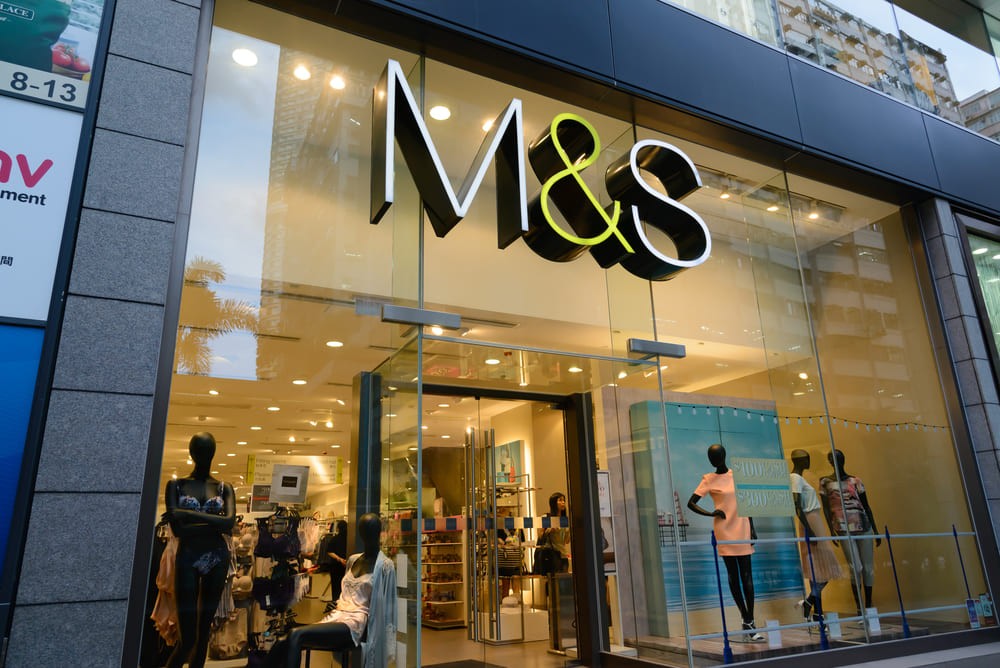A series of cyberattacks has disrupted operations at several big UK retail brands, including Harrods and Marks & Spencer. The attacks have raised concerns about growing threats to the retail and entertainment industries.
Harrods, the famous luxury store, confirmed on Thursday that someone tried to break into its digital systems. A spokesperson for the company said that its tech team acted quickly to protect customer data and store functions.
“In response, we limited internet access at our sites to protect our systems,” Harrods said in a statement. “All our shops, including the Knightsbridge store, remain open for customers.”
Marks & Spencer Also Targeted
Marks & Spencer (M&S), a leading British supermarket and clothing chain, said it had been dealing with cyber issues since Easter. The company believes a ransomware attack caused the trouble.
Ransomware is a type of cybercrime where hackers lock systems or steal data and demand money to restore access. This kind of attack has been growing more common, especially in retail and entertainment.
The problems at M&S have made it harder for customers to shop online. Some stores had trouble with contactless payments. A few stores even faced low stock on their shelves.
“We’re working hard with expert help to fix the issues,” said an M&S spokesperson. “We hope to restart online shopping and app use soon.”
Recruitment at M&S has also slowed down. The company says many of its internal systems were affected, but it is trying to bring everything back to normal.
The Co-op Food Chain Feels the Impact Too
Another retailer hit by the wave of attacks is the Co-op. The Co-op said the damage was less severe but still caused delays. Some back office systems and call centers were affected.
The company said its security response team moved quickly and kept customer-facing services safe. Shoppers were still able to buy goods in most stores without major problems.
Are These Attacks Connected?
Right now, it’s unclear if the attacks on Harrods, M&S, and Co-op were linked. Each company is carrying out its own investigation. But experts say the timing raises questions about a wider plan targeting British retailers.
Cybersecurity teams across the UK are now on high alert. Many believe that this could be part of a larger pattern of attacks aimed at the retail and entertainment sectors.
What This Means for Shoppers
So far, there is no sign that customer payment details or personal data were stolen. Still, customers are being asked to stay alert. If you receive strange emails or calls asking for information, it could be a scam.
Experts say this is a good time to check passwords and update them. It’s also wise to avoid clicking on unknown links or opening suspicious emails.
The Cost of Cybercrime
Cyberattacks don’t just hurt digital systems. They also damage public trust. When customers can’t shop online or pay easily in stores, they get frustrated. And when recruitment systems go down, businesses lose time and money.
For big retailers like M&S and Harrods, the effects go beyond lost sales. They must also spend more to improve their cybersecurity. In some cases, they might even face lawsuits if customer data is found to be at risk.
Retail Industry Faces a Bigger Challenge
This incident is not the first of its kind. In recent years, retail and entertainment businesses have become popular targets for cybercrime. Hackers know that these companies handle large amounts of customer data.
Experts say that attackers may be using new tools powered by artificial intelligence. These tools can help them break into systems more easily than before. As a result, companies are now being urged to invest more in cybersecurity.
Many businesses now see the need to train their workers. When staff members know how to spot warning signs, they can help stop an attack early. Regular system checks, strong passwords, and updated software can also reduce risk.
All three companies—Harrods, M&S, and the Co-op—have promised to improve their defenses. They are working with law enforcement and cybersecurity experts to find the source of the attacks.
For now, customers can still visit stores and shop for what they need. But the situation shows that even trusted brands are not safe from cyber threats.
This event is a clear reminder that cybersecurity is not just for banks or tech firms. Retailers, including those involved in entertainment, must now treat it as a top priority.


